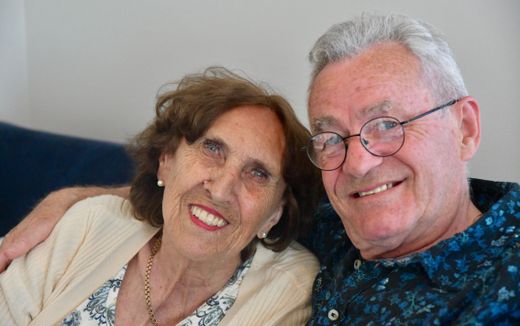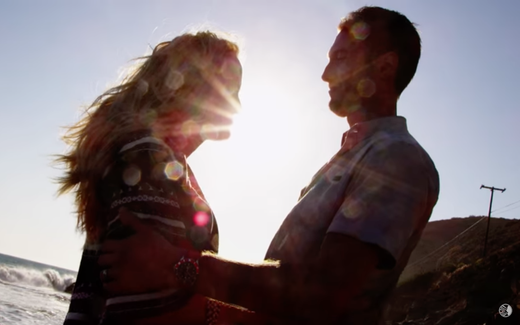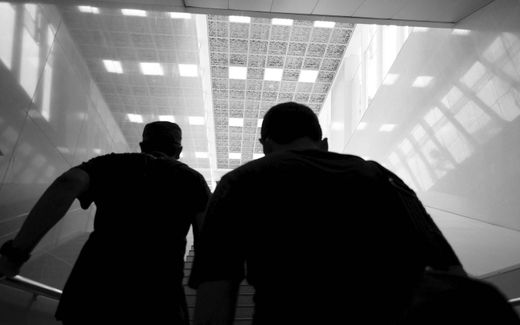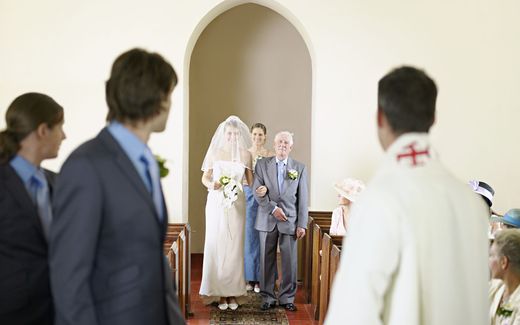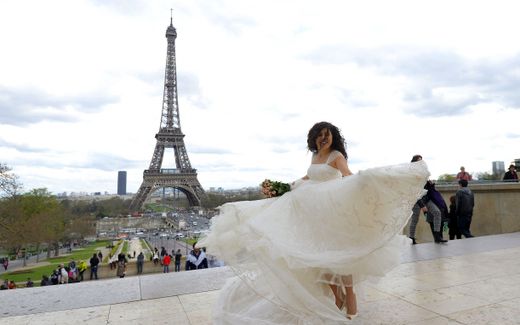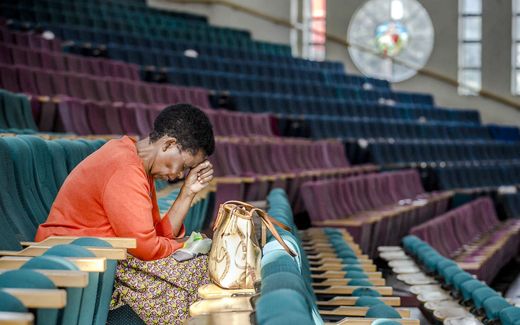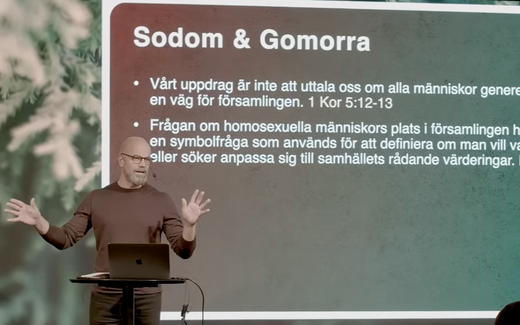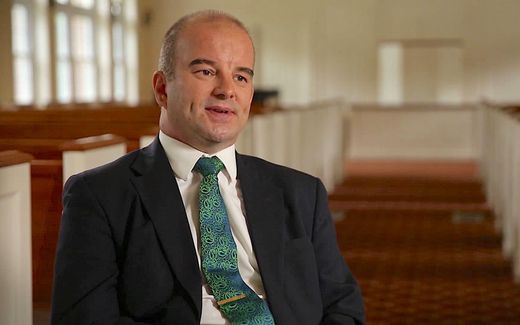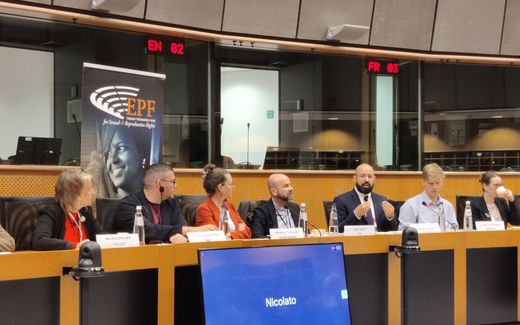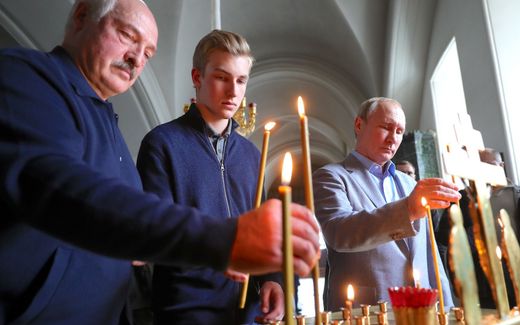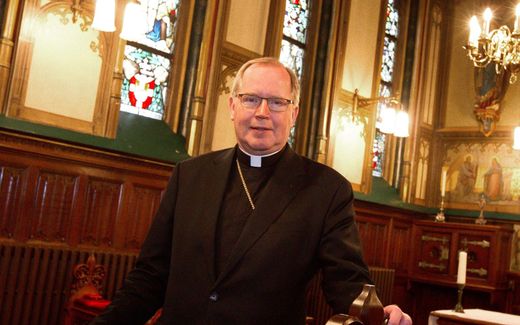Karen realised something was wrong, while she was living with a girlfriend
04-06-2024
Christian Life
Anne Gustavsen, Dagen
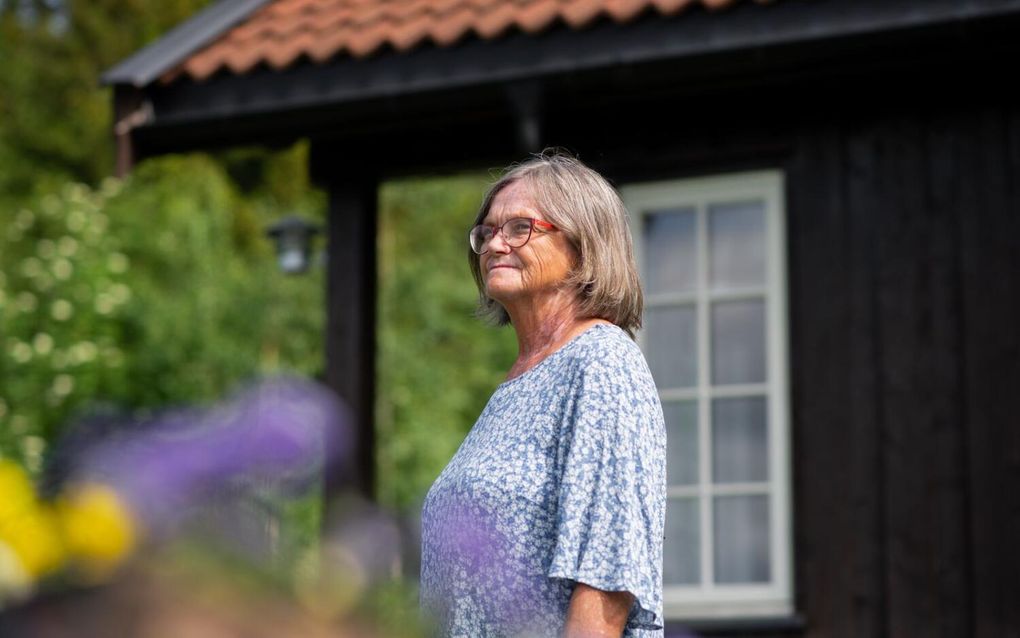
Karen Graaten. Photo Herman Frantzen
Christian Life
"Am I gay?" asked Karen Graaten as, a young student. Karen Graaten is now 68 years old and lives in Lillehammer (about 200 km north from Oslo), in the former retreat centre Johannesgården. For several years, she lived as a Christian in a lesbian cohabitation. But in the end, she had to break out.
“I was in a lesbian relationship. We were both personal Christians and wanted Jesus in our lives. But gradually, I realised that there was something separating me from God. The presence of God gradually disappeared, and it became a time of struggle. In the end, I had to be willing to "lose" my identity as a lesbian person in order to live as a new creature in Christ", Karen Graaten tells.
She says that after the change, she experienced a whole new freedom as a person. "As a Christian, my identity is not in my feelings or my sexuality, but in my new life with Jesus", she says.
Debate
Karen Graaten says that with the Church of Norway's choice of direction on the homosexuality issue and the thinking she now experiences in the Pentecostal movement, she feels let down by large parts of the church.
She has seen in the media that both professor Terje Hegertun from MF Science College and Pentecostal preacher Marit Landrø have had conversations with gay Christians who express a lot of suffering and pain. But so far in the debate, she has not registered that anyone wants to listen to her or like-minded people's life journey.
"I could also describe myself as a victim in this, and many of my fellow siblings see the matter in the same way as I do, but I have no intention of becoming a victim," she emphasises.
Instead, she wants to be a voice that speaks about a different path. "I find it incredibly sad that the church has gone so astray. But instead of being a victim, I've decided to be someone who points to the restoration found in the Gospel."
Encounter
As a young woman, Karen ended up at an agricultural school in Molde. What she did not know was that in Molde, the Jesus revival and the youth work "Ung Visjon" flourished. Thus, she was surrounded by Christians both at school and in her circle of friends.
Alone in her room, Graaten opened a New Testament given to her by a friend and began to read. "When I opened the book, the Holy Spirit came upon me and revealed to me that this was true. I saw into a whole new dimension, a depth I didn't know existed. In one moment, I realised that Jesus loved me. The Word hit me and transformed me", she says with a smile.

"My first encounter with Jesus was very radical and powerful, and it completely changed the direction of my life. I began to live from a completely different perspective, one in which I was loved, valuable, and forgiven. And that the Word was alive and a source of new life for me.
I experienced the presence of Jesus and the Holy Spirit without really knowing anything about this beforehand. The drugs and alcohol, which I had struggled with before, let go," says Graaten, who still had struggles and temptations.
Thirst
After her stay in Molde, she enrolled at the school for auxiliary nurses in Kongsvinger, and for the first time, she became part of a Christian community. Together, they travelled to Oslo for a worship evening at Trefoldighetskirken. On one of these evenings, Karen sat on the last bench in the gallery and felt what she describes as an enormous thirst for more of God.
"Suddenly, the Holy Spirit came upon me, and I was baptised in the Spirit. It was so powerful, and even though no one in my Christian community could explain much about this to me, this experience was a new baptism in the love relationship with God. This also gave a renewed revelation of the Word. It continued to drive me forward."
From Kongsvinger, she travelled to Oslo, where she started a nursing assistant programme at Diakonhjemmet.
"In the beginning, it went well. Eventually, I started to let myself go a bit more, and I found myself in a fairly liberal Christian environment. I moved into a commune with like-minded people. The simple faith I had been given was put to the test."

Gay
Until then, sexuality and orientation had not been an issue in Graaten's life. She had occasionally questioned why she had not managed to establish a proper relationship with a boy. She also had some well-hidden experiences of same-sex attraction. But that was all.
"One boy in my class was gay, and he was given time at school to share about this. He was one of the leading figures in the Open Church group at the time. What he said hit me", says Karen.
"Am I gay? Is that why my life has been so difficult? I thought that this was the answer to my inability to commit to a man and other problems that I had. I had always more or less struggled with feeling different and not fitting in.
So, despite my radical first encounter with Jesus and my eagerness to read the Bible, I eventually came into a context that gave me the impetus to open up about being a lesbian. It was initially a very exciting thought and a big threshold to cross. But it soon turned into action," she says.
Girlfriend
Graaten joined the Open Church Group, where there was full support for following the path that had now opened up for her.
"I clearly noticed that when I started telling people that 'I'm' gay, it established itself more strongly in me. I embraced it with all my heart, and I also got a girlfriend pretty quickly. In many ways, it was a good and powerful experience. It was good to experience love and closeness from another person. I soon joined the board of the Open Church Group and fought for the cause."
She and her girlfriend were quickly accepted by friends and families on both sides and lived very openly. They lived together in Oslo at first but eventually moved out of the city. Life was brighter.
"We were both Christians and wanted Jesus in our lives. I eventually thought it was unfair that we weren't allowed to get married. I felt that this was right and good, and a lot of things fell into place for me."
Trust
It was at this point that Graaten realised that something had changed. The simple-minded faith, trust and love relationship with Jesus that she had at the beginning of her Christian life was increasingly lost to her. "I missed it and eventually became desperate to find it again. I cried and prayed: "What is it that separates us, God?" That was the beginning of a new start.”
"The first thing God showed us was that we were living in sin. That sex outside of marriage between a man and a woman is not according to His good will. Because this became so clear to me, it was easy to confess it as a sin and turn away from it. It became clear to both of us, so we came to terms with it, stopped living together sexually, but continued to live together as friends."
Graaten and her friend still saw themselves as gay. But now she was living in accordance with the Bible and experienced that access to God's presence was opened up again. The words took on new life.
Fallen man
But after a year or so, it turned out that the idea that she was gay was also challenged. "I didn't think it was right that God, Whom I had experienced as so life-affirming and good, had created me into something that I wasn't really allowed to be fully. I read a lot in the Bible and sought God and His will for my life. It all culminated in me having a revelation that by going around saying "I'm gay", I was confessing myself as fallen man, not as a new creature in Christ.”
"But if I wasn't gay, who was I?" Karen asked herself. She had spent so much effort fighting for her identity as a gay woman.
"I had to find that answer in the Bible. Because the Bible says that we have died with Christ – and risen with Him to new life with Him. We are new creatures. As a Christian, my identity is not in my feelings or my sexuality, but in my new life with Jesus."
Cohabitation
In the end, she and her former girlfriend moved apart. Graaten was then given the opportunity to come and live and work at the Sandom retreat centre.
She had had a few counselling sessions with the well-known preacher, author and counsellor Edin Løvås. And now he challenged her to join him as a housemate at Sandom.
"It was good and liberating to break up our cohabitation. We had a very strong bond between us since we had lived so closely, and it had meant so much. But the longing to serve and live for God was a stronger driving force in my life.
I wasn't primarily trying to get rid of gay feelings; I just wanted to live for God.
Too many people work hard to try to fix the old man. Or that God will come and fix it. And it's easy for anyone and everyone to fall into that ditch. Or even worse, we try to fix others. No, we must all go our own way and take responsibility for our lives and our choices. As Christians, we are challenged to be transformed by the renewing of our minds according to God's Word."
God's Word
"My true self was that I had become a new creature in Christ. I was born again. Created as a woman, and if I was ever to live in an intimate relationship again, it was with a man in a marriage."
Karen Graaten makes no secret of the fact that change takes time, and that it is a process. For her, it has been crucial to "give God credit for what He says in His Word", despite what her emotions tell her.
"Then the Word becomes powerful in our lives," she says, quoting from Paul's letter to the Ephesians 4:22-24:
"Do not live as before, but put off the old man who is corrupted by the seductive lusts. Become new in soul and mind! Clothe yourselves with the new man, which is created in the image of God for a life of true righteousness and holiness."
"There is no petty power on our side when we want to follow Jesus. God's Word guides us in the right direction, but if our emotions are the compass needle, we can easily be led astray", she explains.
Difficult childhood
Karen doesn't mean to say it's easy. "It's a struggle to choose despite your feelings. But it's a choice we face many times throughout our lives, and in many areas", she says. "It's not the emotions that are the problem; it's what we do with them."
During the process, she felt that God showed her that she had to forgive her mother, whom she had distanced herself from due to a difficult childhood.
"I was concerned that I didn't want to be like her, and so I threw out of my life everything she represented, including the feminine. I wanted to be a boy. When I forgave my mother, I didn't realise that my relationship with her had had a direct impact on my attraction to the same sex. In retrospect, I saw how the longing for my mother's embrace was sexualised when I hit puberty. In other words, it is a completely legitimate feeling, but one that went in the wrong direction.
It can be painful to die, to lose your life, to give up self-will and control. For me, getting to that point was almost harder than turning from sexual sin. But I no longer live by myself, but Christ lives in me! I am a child of my heavenly Father. That is my true identity. He is a good Father who never gives up on us, no matter how much we have messed up our lives. There is always room to turn around and get back on His track."
Glorious inheritance
Karen calls for more understanding that we are dealing with a holy and living God.
"He knows how sin breaks us down. He also knows what a rich and glorious inheritance He has released for us when we are willing to give up our own way and surrender to Him. The fruit of the Spirit is love, joy and peace. The love that wants what is best for the other person, and not the love that is most concerned with satisfying its own desires and needs. What about honouring God's Word? Humility before a holy and almighty God is bowing to His will and agreeing with Him, regardless of feelings."
In love
Karen says that the year at Sandom was an important year for moving forward in life. So important that she eventually built Johannesgården herself and started a retreat there.
"I lived in the Word and prayer and the Holy Communion and also fasted regularly. I made a good friend who also worked there. It meant a lot to me to have a close friend without anything sexual being involved. She also later helped run the retreats we had at Johannesgården."
Identity as a woman
Later, Karen experienced falling in love with a man. "It actually lasted a couple of years, with subsequent heartbreak. Even though it never became the two of us, it was a good experience and did a lot for my identity as a woman.
At the same time, I spent time on this process. I had to take off the old life and put on the new. I sorted and placed thoughts: what comes from God and what doesn't. I replaced lies with truth. It is always an ongoing process to take our thoughts captive in obedience to Christ. It is not an effort but the new life from within that transforms us.
If I live in condemnation, I lose because I try to achieve something in my own strength and come under the demands of the law and condemnation. It is important all along the way to realise that there is nothing we can do to make God love us more. God must always meet us right where we are, no matter what we bring. He is full of grace and truth. In Christ, there is no condemnation. We get to know the truth, and the truth is what sets us free", says Karen.
Conservative view
Graaten is pleased that Pentecostal leaders are taking a conservative view in the debate that has now flared up.
"The Gospel welcomes everyone, no matter what baggage you bring to the cross. Jesus met the woman caught in adultery with grace, truth and love. The truth of her life as she lived it, grace over her sins and the love that transforms; "Go and sin no more".
Regardless of biblical interpretations, the Gospel stands firm: "Live a life in the Spirit, and you will not follow the desires of the sinful nature" (Galatians 5:16). Desire never gets enough. If lust and spiritual emotions are allowed to rule us, it becomes an eternal search for fulfilment. As Christians, we are to be transformed into the likeness of God, not transform God into our likeness! I live in a love relationship with Jesus, where I am committed to loving and honouring Him."
Choice
Graaten is concerned that when we put people at the centre of theology, the Word is adapted to our human desires and needs.
"We go astray when we put our own before God's Word. Unfortunately, many believers today are ruled by emotions rather than Scriptures. It's about whether we are willing to surrender to God's will and be transformed into new people or follow our desires and lusts. This is a choice everyone must make for themselves", she emphasises.
“When we listen more to the sighs of men than to God, we are moving in the wrong direction. Many gay people struggle; I don't want to minimise that, but so do many others. Some gay people use victimhood as a lever to gain acceptance and sympathy. I recognise this from my own time in the Open Church Group in 1979/81", says Graaten and continues:
"The purpose was to gain acceptance, stand up, work for the cause and support each other in living it out. There was no sounding board for those who wanted to live in celibacy – based on a conviction in God's Word. And when I myself, having discovered a new path to freedom, enthusiastically shared it in the Open Church group, I was met with a cold shoulder and no longer felt welcome."
Repentence
She refers to how the media today highlights stories about how gays have been treated in charismatic churches. "Unfortunately, some of this may be true, but the intention is probably to expose the churches as much as possible, in the hope of bringing them to their knees in favour of full acceptance of homosexuality on a par with heterosexuality", says Graaten.
"But no matter how hard you push, God cannot bless sin. He loves the sinner, however, and we should all be glad of that. God's goodness drives us to repentance. God's grace raises us, and these are lifelong processes."
Neglect
"What is serious today is that we neglect the Word of God and undermine the credibility of the Bible. We rise above the Scripture and create new rules based on what we feel and the pressure from society. That sexual cohabitation should be between two people –man and woman– in marriage is one of the most obvious things in God's Word. But it is I who must allow God to have the right of way in my life."
"God does not force anyone," emphasises Graaten, "and neither should we as a church. God has given man a free will. But with all my heart and experience, I believe and know that God's will leads to life. It produces good fruit.
"Emotions are in the soul, and they are controlled from the outside. It is not a sin to have feelings, but as followers of Jesus, God's Word must be our most important authority. As a Christian, it's about a before and now. My identity is not in my sexuality, but in Christ", says Karen Graaten.
This article was translated by CNE.news and published by Dagen on June 12, 2021
Related Articles

